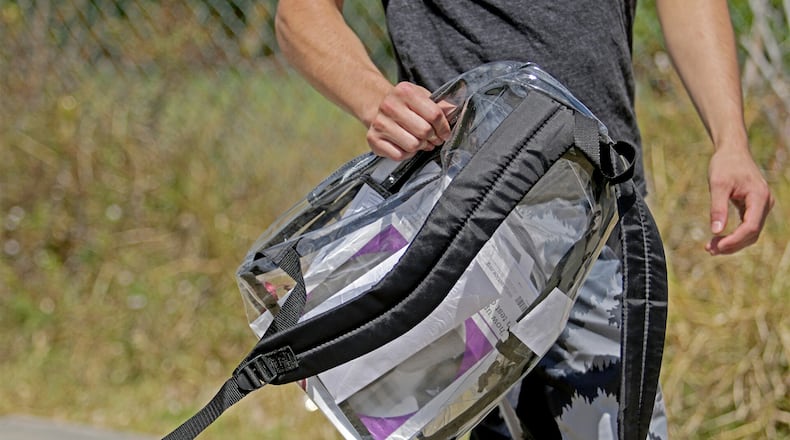Clayton County Schools plans to spend $5.2 million on new metal detectors and ask residents to play a part in securing buildings for the 2022 academic year.
Officials with the south metro Atlanta district, which last week announced new security measures that would require all 52,000-plus Clayton students to carry clear backpacks when classes begin Aug. 3, said on Wednesday that it was investing in new metal detectors for every middle and high school to shore up gaps in its building safety.
District officials also said it will roll out a new “Village on Patrol” program that seeks to get the community involved in policing schools, though details on how that plan would work were unclear.
“They actually have the ability to scan for more than just metal weapons,” Clayton County Schools Police Chief Reynard Walker said of the metal detectors. “They do provide images of the person that may have the weapon as well as the direct location on the person where the weapon may be.”
The news was revealed in a wide-ranging interview between Clayton County school leaders and the media Wednesday — on everything from campus safety to academics to hiring.
It also comes as the school system, like others across the metro area and the nation, are beefing up efforts to secure schools, especially after the May shooting of 19 children and two teachers at an elementary school in Uvalde, Texas.
The Cobb County Board of Education earlier this month approved letting some employees carry weapons in schools, though it did not specify who they would be other than to say it would not be teachers. Superintendent Chris Ragsdale said the armed employees could be new hires with the same training given to school resource officers.
In Rockdale County, students in the southeast metro community also will be required to use clear backpacks in school buildings. In addition, the district has added a new wireless metal detection system and classroom surveillance systems.
Clayton prohibited the use of book bags and lockers in April at the tail end of the last school year because of a flood of weapons on campus. Documents obtained by The Atlanta Journal-Constitution through an open records request found that close to 100 weapons were brought to Clayton school campuses or on its busses, including an AR-15 assault rifle, handguns, brass knuckles, knives, BB guns, stun guns and tasers.
During Wednesday’s discussion with the media, Clayton Superintendent Morcease Beasley said he expected the new school year to continue rebuilding a lot of the progress lost over the past two years because of COVID-19.
Test scores and graduation rates were improving in Clayton County prior to the pandemic and programs on science and technology were beginning to bear fruit, he said.
But the district’s decision to teach middle schoolers and high schoolers remotely for the entire 2020-2021 school year has impacted recent student achievement, with the most recently available data showing drops in Advanced Placement scores for the district’s pupils along with and other academic measurements, he said.
“So many of our families were frontline, they were not willing for our students to come back,” Beasley said. “Students learned virtually but they did not get as much contact as they would have if they were face to face.
“We made the decision that we thought was appropriate for our community,” he said. “But that decision has had ramifications. And our students clearly were impacted academically.”
The Clayton leaders said the school system continues to struggle with staff vacancies, especially among bus drivers and substitutes. But unlike last year, when COVID-19 concerns were the vacancy culprit, the biggest issue this year is competition for staffing among academic peers and businesses.
Bus drivers, for instance, are being recruited by Amazon and MARTA, as well as other school districts.
“When we make a compensation adjustment, they make a compensation adjustment,” Beasley said of he school system, which is now offering bus drivers $18 and more an hour and 36 hours of work.
Staff writer Cassidy Alexander contributed to this report
About the Author
Keep Reading
The Latest
Featured


